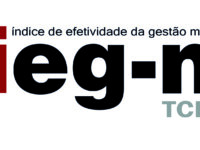The reason for creation was to improve inspection models of external control, which were based mainly on legality and conformity. IEG-M index is an instrument for measuring public area effectiveness, as it analyses the inputs, resources and processes of the local administration, evaluating its policies and activities. There are many finalistic results indexes, but none of them deals with the evaluation of processes to analyse the application of public money that impacts local communities.
Innovation Tag: Methods and Tools
Case Study
Procurement Planning Platform (PPP) for driving Sustainability, Circularity and Innovation in Lisbon…
Lisbon Municipality aims for more innovation and sustainability in Public Procurement. Urgency and specifications' complexity are excuses for not considering sustainability in tenders and barriers to attracting innovative SMEs and startups. The innovative approach involved users designing and developing the Procurement Planning Platform, using a rapid development tool, cloud-based, and agile methods, which selects and supports a project-led approach for deploying new procurement strategies.
The Evaluation Task Force (ETF) ensures evidence and evaluation sits at the heart of UK government spending decisions - any area routinely highlighted for improvement. ETF activity drives continuous improvements in the way programmes are evaluated to inform decisions on whether they should be continued, expanded, modified or stopped. It brings the same approach to the social sciences as medicine uses, fostering a culture of experimentation, learning and rigour.
AFSA regulates the bankruptcy system in Australia. The system is designed to support those in vulnerable situations due to circumstances beyond their control. However, there are bad actors who exploit the system by hiding assets/income. Using our risk-based regulatory approach, we have designed a system that uses an applicant's data and validates it against external data sets to detect potential misconduct. We aspire to build a data model to predict non-compliance at the system entry point.
New Zealand wants our small businesses to be the most digitally enabled in the world. Digital Boost helps owners and employees to build confidence and skills to digitally transform their businesses. Cynefin complexity theory, agile programme development, and public-private partnerships are used to deliver easily accessible learning and services. This includes bespoke playlists of video content, online diagnostic tools, peer-learning support and free or discounted digital equipment or services.…
Trend Atlas is a digital, interactive platform with rich insights on local and global trends and emerging signals to inform strategic planning, policy development and service redesign. It reduces research time, rework and duplication by breaking down information silos with centralised data and evidence. Built by policy people who upskilled in digital, it combines automation and curation with a sustainable contributor model to create a collaborative and trusted strategic intelligence service.
Anticipate is a tech-enhanced tool for context monitoring and early warning of conflict. Anticipate fights bias in analysis by encouraging analysts to be forward-looking and removing echo-chambers. It hosts data collection, political-economic analysis, and anticipation in one place. As such, it is a one-stop shop for the public sector to develop policy.
Case Study
Tertius – An online construction marketplace that easily connects property developers with…
Tertius has resulted in massive productivity gains for the building industry in DC, enabling developers & property owners to book (at a nominal cost) certified third party agency inspections. Outcome: Far more efficient matching of demand & supply for permit inspections, substantially reducing turnaround times. Tertius has driven revenue to the taxpayers, increased regulatory oversight, increased safety in the building community, saving property owners and developers thousands of dollars.
Project Sampoorna, successfully implemented in Bongaigaon district of Assam, is a model that can be easily implemented anywhere in reducing child malnutrition. This project has resulted in reduction of malnutrition in children by 95.6 % within 1 year in Bongaigaon district using very less economic investment. It is an initiative for tackling SAM and MAM by using Weight for Height growth chart & Empowering Mothers by employing Buddy Mother concept along with community participation.
Till 2017, the Ministries and govt. organizations took individual, decentralized & disintegrated initiatives to digitize public services. But most initiatives were facing challenges to provide services due to unplanned design and implementation. To overcome this, Digital Service Design Lab is an innovative method where service providers, service recipients and IT experts design digital services and prepare digitization masterplan together for their respective ministry/org. within just 6-7 days.





